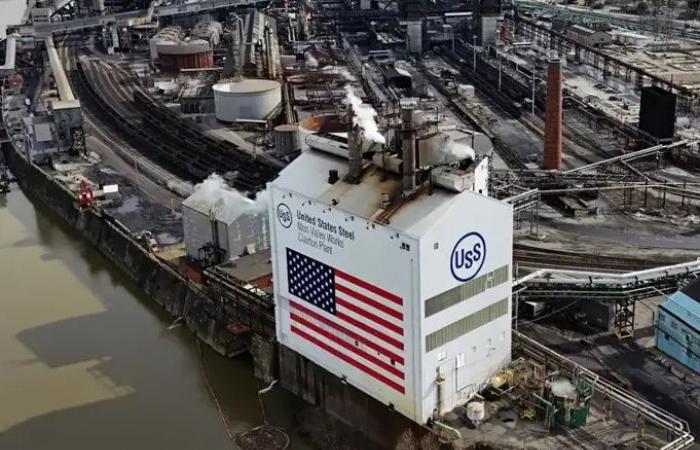(Tokyo) Are future Japanese investments in the United States in danger? Tokyo on Monday demanded that Washington explain the risks for “national security” which led it to reject the acquisition of the steelmaker US Steel by Nippon Steel, with the two groups taking legal action against this decision.
Posted at 6:42 a.m.
Updated at 9:59 a.m.
Tomohiro OSAKI
Agence France-Presse
“They must be able to clearly explain how” this takeover project “constituted a concern for national security” of the United States, Japanese Prime Minister Shigeru Ishiba told the press.
“It is unfortunately true that the Japanese industrial world is worried about the future of investments (in the United States). We urge the U.S. government to take steps to allay these concerns,” otherwise it risks derailing “discussions in the future,” he warned.
Japan is the largest source of foreign direct investment (FDI) in the United States. Japanese investments there totaled $783.3 billion in 2023, or 14.5% of total FDI in the country, according to American figures.
US President Joe Biden announced on Friday that he was blocking the takeover of US Steel by Japanese steel giant Nippon Steel, announced in December 2023 for $14.9 billion.
This merger “would pose risks to our national security and critical supply chains.” A strong, nationally owned and operated steel industry represents a key priority,” argued Mr. Biden, who will hand over his position on January 20 to Donald Trump.
The United States is the world’s largest importer of steel, a sector overwhelmingly dominated by its great rival, China.
“Deterrent effect”
The decision was expected but nonetheless had the effect of a cold shower in Tokyo, which is already preparing for a tougher American protectionist approach under the Republican magnate’s second term.
Japanese Economy Minister Yoji Muto judged this rejection “incomprehensible and regrettable” on Saturday.
“This is not a decision against Japan, we have been in contact with them and shared our impressions,” White House spokesperson Karine Jean-Pierre tried to clear the air.
Not enough to reassure John Murphy, vice-president of the American Chamber of Commerce. “The Biden administration’s politicization of the acquisition of US Steel […] could have a deterrent effect on international investments in the United States,” he lamented.
“Investments from an important and reliable ally, Japan, support nearly a million American jobs,” he said in a statement.
Political interference
In response, the Nippon Steel and US Steel groups announced on Monday that they had filed an appeal before a US appeals court to challenge the takeover review process, believing that President Biden had used his influence unduly for political purposes.
With this decision, President Biden “ignored the rule of law to win the favor” of the American steel industry unions and “support his political agenda”, accuse the two groups in their press release, regretting an “illegal interference “.
Additionally, the Committee on Foreign Investment in the United States did not conduct its regulatory review process “in good faith,” they continue.
In fact, the operation was subject to intense political pressure: it primarily concerned Pennsylvania, an electorally strategic state and also the cradle of the steel industry in the United States.
The American political class was almost unanimous in opposing this transaction. Mr. Trump, who sticks to protectionist positions, had also displayed his hostility.
“It is inappropriate for politics to continue to trump true national security interests,” Nippon Steel argued on December 11, before multiplying concessions and guarantees to mollify the Biden administration and the unions.
In addition to maintaining jobs and massive investments, the company would have, according to the press, in particular proposed to the American government the right of veto over any potential reduction in US Steel’s production in the United States.
In difficulty, US Steel had for its part warned that in the event of failure of its acquisition by Nippon Steel, it would be forced to abandon massive modernization investments on several sites, at the cost of social plans and possible closures. steelworks.
The Japanese employers’ organization Keizai Doyukai is now calling for adaptation to the American “protectionist” shift.
“In areas related to economic security, we should strengthen cooperation with countries like South Korea, Australia, the Philippines and India, so as not to become completely dependent on the United States,” said its president Takeshi Niinami.






